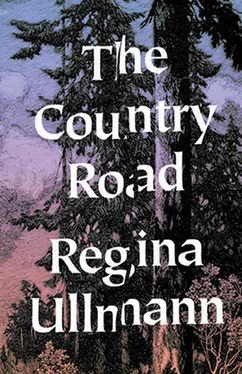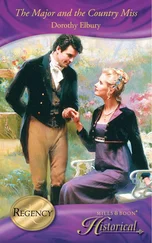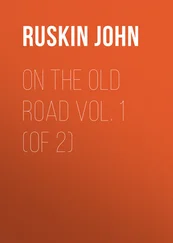Regina Ullman - The Country Road
Здесь есть возможность читать онлайн «Regina Ullman - The Country Road» весь текст электронной книги совершенно бесплатно (целиком полную версию без сокращений). В некоторых случаях можно слушать аудио, скачать через торрент в формате fb2 и присутствует краткое содержание. Год выпуска: 2015, Издательство: New Directions, Жанр: Классическая проза, на английском языке. Описание произведения, (предисловие) а так же отзывы посетителей доступны на портале библиотеки ЛибКат.
- Название:The Country Road
- Автор:
- Издательство:New Directions
- Жанр:
- Год:2015
- ISBN:нет данных
- Рейтинг книги:5 / 5. Голосов: 1
-
Избранное:Добавить в избранное
- Отзывы:
-
Ваша оценка:
- 100
- 1
- 2
- 3
- 4
- 5
The Country Road: краткое содержание, описание и аннотация
Предлагаем к чтению аннотацию, описание, краткое содержание или предисловие (зависит от того, что написал сам автор книги «The Country Road»). Если вы не нашли необходимую информацию о книге — напишите в комментариях, мы постараемся отыскать её.
, largely set in the Swiss countryside, the archaic and the modern collide, and "sometimes the whole world appears to be painted on porcelain, right down to the dangerous cracks." this delicate but fragile beauty, with its ominous undertones, gives Ullmann her unique voice.
The Country Road — читать онлайн бесплатно полную книгу (весь текст) целиком
Ниже представлен текст книги, разбитый по страницам. Система сохранения места последней прочитанной страницы, позволяет с удобством читать онлайн бесплатно книгу «The Country Road», без необходимости каждый раз заново искать на чём Вы остановились. Поставьте закладку, и сможете в любой момент перейти на страницу, на которой закончили чтение.
Интервал:
Закладка:
“Certainly,” said the venerable, overly stern matron, who was now sitting at a slight distance from the table, but still facing it, “the bundt cake that you all wanted to bake would have been foolish and out of place. Just because we live in the country, you think we should have a peasant cake on the table. . even a blind man can see that that’s foolish.” The sentence took on enormous weight, silence ensued, although someone ought to have replied. The puritanical clarity of this mountain woman, who kept her senses sharp with herbs and stones, truly admitted of no retort.
You couldn’t make anything up when she was around. You most certainly couldn’t defend needless or foolhardy things to her. And what was even worse, though luckily it happened only rarely: with a silent nod to her blindness, people would simply do what they pleased, unseen.
But she noticed when there was an extra stranger seated at the table, even if he had never spoken and hardly moved. She noticed it without letting on. She knew it must be difficult to carry on at such great length. And she noticed, too, when others were merely preoccupied in their thoughts. And in her straightforward way, she was like a small burning mirror. Whatever this mirror was trained on, whether a person or a thing, it would begin to burn in anguished honesty.
It didn’t help that the guests came: that they took the measure of this limitless warmth, this attentive joy that people feel for each other in those moments, when their only regret is that they can’t do more for each other. It didn’t help that this was a moment when they could truly see; that each person had his own sense of proportion, and could sense that the others did as well: still the petty eyes kept searching in silence for something else. What would it have mattered if they wanted to have a piece of cake to go with their last sip of wine. But the old woman hadn’t let them bake the bundt cake, she wouldn’t hear of it. Nevertheless, it was a relief to realize that no one was really thinking of anything besides what was already there. They nodded back and forth to each other, dug deep into the pâté, and thought as they looked around the garden that this was the most beautiful place on earth! The lady of the house had disappeared, the maid and the young girl had carried the platters back into the house, and white rolls were lying here and there alongside the glasses.
One of the gentlemen stood up, his gray top hat wobbling over everyone. A bit hunched over, he began to speak; like a young boy slowly pulling in the string and winding it back up to bring his kite down from the sky. “My God,” he said, “I feel that the world is beautiful, and that this beauty is not only on the outside, but that it comes from the heart as well. Let’s have a good drink, gentlemen, to the health of the hale old mother, and to the health of the lady of the house.” The lady of the house was already standing in the doorway, her face flushed. In her hands she held a platter with a bundt cake on a large stiff doily. Her hands were tied, so to speak, she couldn’t raise a glass and take a small, satisfying sip to express her thanks. Instead, she gave the bundt cake a happy little shake, and when she got to the table she began to cut it, letting that take the place of words.
But then, like a small, curled dragon, the lie came crawling out of the cake. It had been purchased at the last minute from the baker, and from the outside it looked just like every other bundt cake in the world. As for the astonishment that it produced, you could simply accept it in silence, just as she had done; but you could not simply accept the candid truth that was its real core.
A trusting person, however, of all people, would like to pull off an elegant lie someday, like this lie brought in from outside. All the more when that lie is unspoken. . But the cake spoke, it was lemon yellow inside, through and through. The knife stuck fast in it, it couldn’t find the way in or out. And now no one could deny that it came from the baker. That was no praise at all for a country mother.
Now she stood there, and she wouldn’t even let the maid take that miserable saffron cake from her hands. No, it seemed that she was serving it out quite properly, quite completely, until finally the last crumb had disappeared under the matron’s fine smile.
The fountain splashed and played its royal game with the little golden ball. A bird sent its song into the air, so that everyone looked and was caught up in the words of this language.
But then the time was almost at an end again, this good hour. The young girl came to the table with a little basket on her arm, bringing each of the guests one of the roses or buds that grew in the garden. Her smile was hidden, like the fragrance of the flowers. And each person took the flower in his own way, and depending on the sort, put it on his hat or in a buttonhole, or held it by the very end of its stem, as if it could easily wilt. And all of them, young and old, at once embarrassed and amused by this adornment, made their way back to the station, garrulous with wine.
The Hunchback
The living room was alone again. There was only an old maid passing through to shut the windows. You could think of it as any time of year you pleased, from March to September. The light was a rainy rose color. The streets must have been damp. The roofs were, in any case. The sky settled there like the pigeons that strutted across those roofs, holding their breasts puffed out before them. They almost seemed to be there in that room.
But mostly there were only bird cages, not an unusual sight in the home of a hunchback, they were mounted on the walls beside the windows, at just the right height to be seen by someone crouched over his work. But the two occupants, each in his own cage, were covered with a small green cloth. They sang, in turn or in unison. They were bullfinches, and they had forgotten their songs, as they did each year during molting season. And the covering might have been meant to distract them from all thoughts of spring, and to reacquaint them with those well-practiced melodies. Their tongues had been loosened, and one of them sang as if it were a bubbling spring, and had only just thought to sing those songs men often wrote to accompany its flowing notes. So it poured forth, as if the song had recollected itself again. Then all was silent for a while, and you could only speculate that the singer was enjoying a little bunch of lettuce, and his neighbor had dipped his feathered head into a water bath; for joy is to be shared on earth. And the room trembled and wobbled a bit, so alone, delicate as a young girl. .
There wasn’t a mirror in the room — oh, yes, on the door, in a darkish spot; and in it you could glimpse a Christ child under a glass dome. Then the singing began again, like the voice of a young girl in church. God, what a room that was. How the sun ripened there, too. The sofa had spread out its flower garden. There was an order there, too, it felt like early spring. And some people are like that all the time. They always have ears for that first season of their soul. But it would be unjust indeed to deny them their sentiments. It is the pure melody of their hearts, it is their unclouded truth. In the face of that, all preaching falls away, in the end they know more than we do. Above all, they have a real home. What was there, was breathing like the hundred-year-old ivy of a garden. It might be sentimental, but it was sacred, too. Is it even possible to draw such a distinction without being truly heartless? Can we even possibly enter the mind of a thoroughly uneducated person? The way that he has constructed the world for himself out of inherited customs and laws discovered on his own. . But despite the apparent risk of growing caught in this cocoon, there was a sobriety there, too. There was order there, as I have said. And cleanliness, too, its natural consequence. There was an old writing desk, you could see that it was used for calculations. And there was another corner that looked like a workshop. Violins were hanging there, made for angels, never touched by a finger, these instruments may have been more than precious; there were unfinished violins hanging there, violin necks with fingerboards and violins without backs. You could gaze into the mystery of the violin. Down from the wall came a sound like the song in a dream. You not only saw it, you felt it: this was the workshop of a violin maker.
Читать дальшеИнтервал:
Закладка:
Похожие книги на «The Country Road»
Представляем Вашему вниманию похожие книги на «The Country Road» списком для выбора. Мы отобрали схожую по названию и смыслу литературу в надежде предоставить читателям больше вариантов отыскать новые, интересные, ещё непрочитанные произведения.
Обсуждение, отзывы о книге «The Country Road» и просто собственные мнения читателей. Оставьте ваши комментарии, напишите, что Вы думаете о произведении, его смысле или главных героях. Укажите что конкретно понравилось, а что нет, и почему Вы так считаете.












